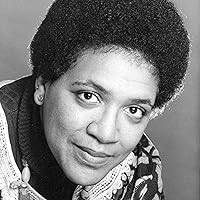Survivors Quotes
Quotes tagged as "survivors"
Showing 1-30 of 343

“and when we speak we are afraid
our words will not be heard
nor welcomed
but when we are silent
we are still afraid
So it is better to speak
remembering
we were never meant to survive”
― The Black Unicorn: Poems
our words will not be heard
nor welcomed
but when we are silent
we are still afraid
So it is better to speak
remembering
we were never meant to survive”
― The Black Unicorn: Poems

“When you come out of the grips of a depression there is an incredible relief, but not one you feel allowed to celebrate. Instead, the feeling of victory is replaced with anxiety that it will happen again, and with shame and vulnerability when you see how your illness affected your family, your work, everything left untouched while you struggled to survive. We come back to life thinner, paler, weaker … but as survivors. Survivors who don’t get pats on the back from coworkers who congratulate them on making it. Survivors who wake to more work than before because their friends and family are exhausted from helping them fight a battle they may not even understand. I hope to one day see a sea of people all wearing silver ribbons as a sign that they understand the secret battle, and as a celebration of the victories made each day as we individually pull ourselves up out of our foxholes to see our scars heal, and to remember what the sun looks like.”
― Furiously Happy: A Funny Book About Horrible Things
― Furiously Happy: A Funny Book About Horrible Things

“As long as you keep secrets and suppress information, you are fundamentally at war with yourself…The critical issue is allowing yourself to know what you know. That takes an enormous amount of courage.”
― The Body Keeps the Score: Brain, Mind, and Body in the Healing of Trauma
― The Body Keeps the Score: Brain, Mind, and Body in the Healing of Trauma

“In order to escape accountability for his crimes, the perpetrator does everything in his power to promote forgetting. If secrecy fails, the perpetrator attacks the credibility of his victim. If he cannot silence her absolutely, he tries to make sure no one listens.”
― Trauma and Recovery: The Aftermath of Violence - From Domestic Abuse to Political Terror
― Trauma and Recovery: The Aftermath of Violence - From Domestic Abuse to Political Terror

“To those who abuse: the sin is yours, the crime is yours, and the shame is yours. To those who protect the perpetrators: blaming the victims only masks the evil within, making you as guilty as those who abuse. Stand up for the innocent or go down with the rest.”
― Church of Lies
― Church of Lies

“The ORDINARY RESPONSE TO ATROCITIES is to banish them from consciousness. Certain violations of the social compact are too terrible to utter aloud: this is the meaning of the word unspeakable.
Atrocities, however, refuse to be buried. Equally as powerful as the desire to deny atrocities is the conviction that denial does not work. Folk wisdom is filled with ghosts who refuse to rest in their graves until their stories are told. Murder will out. Remembering and telling the truth about terrible events are prerequisites both for the restoration of the social order and for the healing of individual victims.
The conflict between the will to deny horrible events and the will to proclaim them aloud is the central dialectic of psychological trauma. People who have survived atrocities often tell their stories in a highly emotional, contradictory, and fragmented manner that undermines their credibility and thereby serves the twin imperatives of truth-telling and secrecy. When the truth is finally recognized, survivors can begin their recovery. But far too often secrecy prevails, and the story of the traumatic event surfaces not as a verbal narrative but as a symptom.
The psychological distress symptoms of traumatized people simultaneously call attention to the existence of an unspeakable secret and deflect attention from it. This is most apparent in the way traumatized people alternate between feeling numb and reliving the event. The dialectic of trauma gives rise to complicated, sometimes uncanny alterations of consciousness, which George Orwell, one of the committed truth-tellers of our century, called "doublethink," and which mental health professionals, searching for calm, precise language, call "dissociation." It results in protean, dramatic, and often bizarre symptoms of hysteria which Freud recognized a century ago as disguised communications about sexual abuse in childhood. . . .”
― Trauma and Recovery: The Aftermath of Violence - From Domestic Abuse to Political Terror
Atrocities, however, refuse to be buried. Equally as powerful as the desire to deny atrocities is the conviction that denial does not work. Folk wisdom is filled with ghosts who refuse to rest in their graves until their stories are told. Murder will out. Remembering and telling the truth about terrible events are prerequisites both for the restoration of the social order and for the healing of individual victims.
The conflict between the will to deny horrible events and the will to proclaim them aloud is the central dialectic of psychological trauma. People who have survived atrocities often tell their stories in a highly emotional, contradictory, and fragmented manner that undermines their credibility and thereby serves the twin imperatives of truth-telling and secrecy. When the truth is finally recognized, survivors can begin their recovery. But far too often secrecy prevails, and the story of the traumatic event surfaces not as a verbal narrative but as a symptom.
The psychological distress symptoms of traumatized people simultaneously call attention to the existence of an unspeakable secret and deflect attention from it. This is most apparent in the way traumatized people alternate between feeling numb and reliving the event. The dialectic of trauma gives rise to complicated, sometimes uncanny alterations of consciousness, which George Orwell, one of the committed truth-tellers of our century, called "doublethink," and which mental health professionals, searching for calm, precise language, call "dissociation." It results in protean, dramatic, and often bizarre symptoms of hysteria which Freud recognized a century ago as disguised communications about sexual abuse in childhood. . . .”
― Trauma and Recovery: The Aftermath of Violence - From Domestic Abuse to Political Terror

“When I listened to her, I understood: You have to hold out to see how your life unfolds, because it is most likely beyond what you can imagine. It is not a question of if you will survive this, but what beautiful things await you when you do. I had to believe her, because she was living proof. Then she said, Good and bad things come from the universe holding hands. Wait for the good to come.”
― Know My Name
― Know My Name

“I once spoke to someone who had survived the genocide in Rwanda, and she said to me that there was now nobody left on the face of the earth, either friend or relative, who knew who she was. No one who remembered her girlhood and her early mischief and family lore; no sibling or boon companion who could tease her about that first romance; no lover or pal with whom to reminisce. All her birthdays, exam results, illnesses, friendships, kinships—gone. She went on living, but with a tabula rasa as her diary and calendar and notebook. I think of this every time I hear of the callow ambition to 'make a new start' or to be 'born again': Do those who talk this way truly wish for the slate to be wiped? Genocide means not just mass killing, to the level of extermination, but mass obliteration to the verge of extinction. You wish to have one more reflection on what it is to have been made the object of a 'clean' sweep? Try Vladimir Nabokov's microcosmic miniature story 'Signs and Symbols,' which is about angst and misery in general but also succeeds in placing it in what might be termed a starkly individual perspective. The album of the distraught family contains a faded study of Aunt Rosa, a fussy, angular, wild-eyed old lady, who had lived in a tremulous world of bad news, bankruptcies, train accidents, cancerous growths—until the Germans put her to death, together with all the people she had worried about.”
― Hitch 22: A Memoir
― Hitch 22: A Memoir

“Perfectionism is the unparalleled defense for emotionally abandoned children. The existential unattainability of perfection saves the child from giving up, unless or until, scant success forces him to retreat into the depression of a dissociative disorder, or launches him hyperactively into an incipient conduct disorder. Perfectionism also provides a sense of meaning and direction for the powerless and unsupported child. In the guise of self-control, striving to be perfect offers a simulacrum of a sense of control. Self-control is also safer to pursue because abandoning parents typically reserve their severest punishment for children who are vocal about their negligence.”
―
―
“Violators cannot live with the truth: survivors cannot live without it. There are those who still, once again, are poised to invalidate and deny us. If we don't assert our truth, it may again be relegated to fantasy. But the truth won't go away. It will keep surfacing until it is recognized. Truth will outlast any campaigns mounted against it, no matter how mighty, clever, or long. It is invincible. It's only a matter of which generation is willing to face it and, in so doing, protect future generations from ritual abuse.”
― Safe Passage to Healing: A Guide for Survivors of Ritual Abuse
― Safe Passage to Healing: A Guide for Survivors of Ritual Abuse

“Sensitive people care when the world doesn't because we understand waiting to be rescued and no one shows up. We have rescued ourselves, so many times that we have become self taught in the art of compassion for those forgotten.”
―
―

“Often it isn’t the initiating trauma that creates seemingly insurmountable pain, but the lack of support after.”
― Gift of the Dreamtime - Reader's Companion
― Gift of the Dreamtime - Reader's Companion
“In a healthy relationship, vulnerability is wonderful. It leads to increased intimacy and closer bonds. When a healthy person realizes that he or she hurt you, they feel remorse and they make amends. It’s safe to be honest. In an abusive system, vulnerability is dangerous. It’s considered a weakness, which acts as an invitation for more mistreatment. Abusive people feel a surge of power when they discover a weakness. They exploit it, using it to gain more power. Crying or complaining confirms that they’ve poked you in the right spot.”
― The Rescued Soul: The Writing Journey for the Healing of Incest and Family Betrayal
― The Rescued Soul: The Writing Journey for the Healing of Incest and Family Betrayal

“We are all damaged. We have all been hurt. We have all had to learn painful lessons. We are all recovering from some mistake, loss, betrayal, abuse, injustice or misfortune. All of life is a process of recovery that never ends. We each must find ways to accept and move through the pain and to pick ourselves back up. For each pang of grief, depression, doubt or despair there is an inverse toward renewal coming to you in time. Each tragedy is an announcement that some good will indeed come in time. Be patient with yourself.”
― Simple Reminders: Inspiration for Living Your Best Life
― Simple Reminders: Inspiration for Living Your Best Life

“Punishments include such things as flashbacks, flooding of unbearable emotions, painful body memories, flooding of memories in which the survivor perpetrated against others, self-harm, and suicide attempts.”
― Healing the Unimaginable: Treating Ritual Abuse and Mind Control
― Healing the Unimaginable: Treating Ritual Abuse and Mind Control

“In order to escape accountability for his crimes, the perpetrator does everything in his power to promote forgetting. Secrecy and silence are the perpetrator’s first line of defense. If secrecy fails, the perpetrator attacks the credibility of his victim. If he cannot silence her absolutely, he tries to make sure that no one listens. To this end, he marshals an impressive array of arguments, from the most blatant denial to the most sophisticated and elegant rationalization. After every atrocity one can expect to hear the same predictable apologies: it never happened; the victim lies; the victim exaggerates; the victim brought it upon herself; and in any case it is time to forget the past and move on. The more powerful the perpetrator, the greater is his prerogative to name and define reality, and the more completely his arguments prevail.”
― Trauma and Recovery: The Aftermath of Violence - From Domestic Abuse to Political Terror
― Trauma and Recovery: The Aftermath of Violence - From Domestic Abuse to Political Terror

“The paradox of vengefulness is that it makes men dependent upon those who have harmed them, believing that their release from pain will come only when they make their tormentors suffer. In seeking the Bird's death to free himself, Louie had chained himself, once again, to his tyrant. During the war, the Bird had been unwilling to let go of Louie; after the war, Louie was unable to let go of the Bird.”
― Unbroken: A World War II Story of Survival, Resilience and Redemption
― Unbroken: A World War II Story of Survival, Resilience and Redemption

“In situations of captivity the perpetrator becomes the most powerful person in the life of the victim, and the psychology of the victim is shaped by the actions and beliefs of the perpetrator.”
― Trauma and Recovery: The Aftermath of Violence - From Domestic Abuse to Political Terror
― Trauma and Recovery: The Aftermath of Violence - From Domestic Abuse to Political Terror

“Many survivors insist they’re not courageous: ‘If I were courageous I would have stopped the abuse.’ ‘If I were courageous, I wouldn't be scared’... Most of us have it mixed up. You don’t start with courage and then face fear. You become courageous because you face your fear.”
―
―
“The fear of abandonment forced me to comply as a child, but I’m not forced to comply anymore. The key people in my life did reject me for telling the truth about my abuse, but I’m not alone. Even if the consequence for telling the truth is rejection from everyone I know, that’s not the same death threat that it was when I was a child. I’m a self-sufficient adult and abandonment no longer means the end of my life.”
― The Rescued Soul: The Writing Journey for the Healing of Incest and Family Betrayal
― The Rescued Soul: The Writing Journey for the Healing of Incest and Family Betrayal

“Psychological trauma is an affliction of the powerless. At the moment of trauma, the victim is rendered helpless by overwhelming force. When the force is that of nature, we speak of disasters. When the force is that of other human beings, we speak of atrocities. Traumatic events overwhelm the ordinary systems of care that give people a sense of control, connection, and meaning.… Traumatic events are extraordinary, not because they occur rarely, but rather because they overwhelm the ordinary human adaptations to life.… They confront human beings with the extremities of helplessness and terror, and evoke the responses of catastrophe.”
― Trauma and Recovery: The Aftermath of Violence - From Domestic Abuse to Political Terror
― Trauma and Recovery: The Aftermath of Violence - From Domestic Abuse to Political Terror
“She's terrified that all these sensations and images are coming out of her — but I think she's even more terrified to find out why." Carla's description was typical of survivors of chronic childhood abuse. Almost always, they deny or minimize the abusive memories. They have to: it's too painful to believe that their parents would do such a thing.”
―
―

“If you live your life to please everyone else, you will continue to feel frustrated and powerless. This is because what others want may not be good for you. You are not being mean when you say NO to unreasonable demands or when you express your ideas, feelings, and opinions, even if they differ from those of others.”
― The Nice Girl Syndrome: Stop Being Manipulated and Abused -- And Start Standing Up for Yourself
― The Nice Girl Syndrome: Stop Being Manipulated and Abused -- And Start Standing Up for Yourself

“Always remember, if you have been diagnosed with PTSD, it is not a sign of weakness; rather, it is proof of your strength, because you have survived!”
―
―

“Without dignity, identity is erased. In its absence, men are defined not by themselves, but by their captors and the circumstances in which they are forced to live.”
― Unbroken: A World War II Story of Survival, Resilience and Redemption
― Unbroken: A World War II Story of Survival, Resilience and Redemption

“Survivors who don’t stand up for themselves often develop physical and emotional illnesses. Many become depressed because they feel so hopeless and helpless about being able to change their lives. They turn their anger inward and become prone to headaches, muscle tension, nervous conditions and insomnia.”
― The Nice Girl Syndrome: Stop Being Manipulated and Abused -- And Start Standing Up for Yourself
― The Nice Girl Syndrome: Stop Being Manipulated and Abused -- And Start Standing Up for Yourself

“There was a reason these boys were still alive, though. Something made them stronger than the other kids, the ones who had died in the early days, who had simply lain down and given up, unable to cope with the terrible things that were happening in the world. These boys were survivors. The will to live was stronger than any other feelings.”
― The Enemy
― The Enemy
All Quotes
|
My Quotes
|
Add A Quote
Browse By Tag
- Love Quotes 98k
- Life Quotes 76.5k
- Inspirational Quotes 73.5k
- Humor Quotes 44k
- Philosophy Quotes 30k
- Inspirational Quotes Quotes 27k
- God Quotes 26.5k
- Truth Quotes 24k
- Wisdom Quotes 23.5k
- Romance Quotes 23.5k
- Poetry Quotes 22.5k
- Death Quotes 20k
- Life Lessons Quotes 20k
- Happiness Quotes 19k
- Quotes Quotes 18k
- Hope Quotes 18k
- Faith Quotes 18k
- Inspiration Quotes 17k
- Spirituality Quotes 15k
- Religion Quotes 15k
- Motivational Quotes 15k
- Writing Quotes 15k
- Relationships Quotes 14.5k
- Life Quotes Quotes 14.5k
- Love Quotes Quotes 14k
- Success Quotes 13.5k
- Time Quotes 12.5k
- Motivation Quotes 12.5k
- Science Quotes 11.5k
- Motivational Quotes Quotes 11.5k



